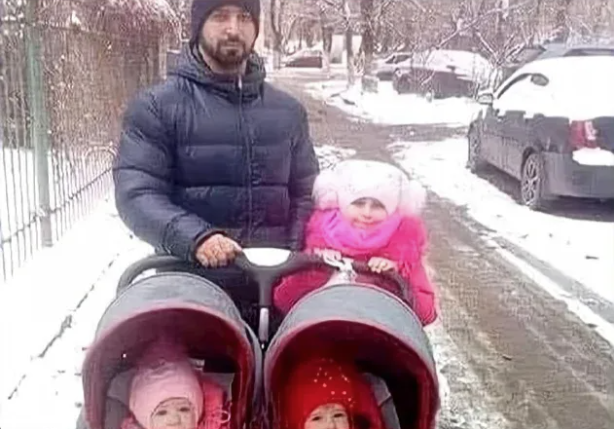
Alex’s wife died after giving birth to their children. Not one child—children. Twins, maybe triplets. Newborns who would need constant care, endless attention, sleepless nights and exhausting days. The kind of responsibility that feels overwhelming even with two parents. Alone, it seemed impossible.
His relatives gathered around him in those first terrible hours after his wife’s death. They meant well, probably. They were trying to be practical, trying to protect him from what they saw as inevitable failure. “You can’t raise them alone,” they told him. “Give them to an orphanage.”
Alex looked down at his newborn babies, sleeping peacefully despite the chaos their arrival had caused. He watched them breathe—tiny chests rising and falling, small fists curled, completely unaware that their mother was gone and their future was being debated by adults who’d already decided he would fail.
He felt something break inside him. Not despair, but resolve. These were his children. His and hers. The last piece of the woman he loved, the future they’d planned together, the family they’d dreamed about. And his relatives wanted him to give them away?
“These are my children,” he said quietly. “I will never abandon them.”
His family shook their heads. “You’ll fail,” they warned. They listed all the reasons: the sleepless nights, the exhaustion, the cost, the impossibility of doing it all alone. They painted a picture of inevitable collapse, of a man who would crumble under the weight of single parenthood.
Alex stopped talking to them that day. Not out of anger, but out of necessity. He couldn’t afford to let their doubt infect his determination. He had work to do.
Now he wakes up at 5 a.m. every morning. Feeds his kids. Gets them ready. Goes to work. Comes home exhausted but never complaining. The photo shows him pushing a stroller with multiple children—bundled in winter coats, surrounded by snow, being guided through their neighborhood by a father who refused to give up on them.
When people ask how he does it, he gives an answer so simple it sounds impossible: “Love finds a way.”
He never needed his family’s help. He never needed their permission or their approval or their belief that he could do it. He only needed his heart. And his heart told him that abandoning his children wasn’t an option, regardless of how hard it would be.
Single parenthood is brutally difficult. There’s no romanticizing the exhaustion, the constant worry, the weight of being everything to everyone while having no one to lean on yourself. It’s waking up before dawn because there’s no other choice. It’s working all day and coming home to more work. It’s being touched out and tired and overwhelmed while still finding the energy to be present for the small humans who need you.
But Alex does it. Every single day. Not because he’s superhuman, but because love really does find a way. Because when you look at your children and know they’re counting on you, you discover reserves of strength you didn’t know existed.
His relatives said he’d fail. They’re not in the picture anymore—literally and figuratively. They made their prediction and stepped back, waiting to be proven right. But they weren’t right. Alex didn’t fail. His children are thriving, loved, secure. They have a father who shows up every single day, who chose them over convenience, who refused to let grief become an excuse for abandonment.
There’s a quiet heroism in this that often goes unrecognized. Society loves dramatic rescue stories, but it often overlooks the daily grind of parents who simply refuse to give up. Who wake up exhausted and do it anyway. Who work all day and come home to more work. Who sacrifice their own needs, their own rest, their own peace because their children need them.
Alex is one of those parents. He didn’t have a choice about losing his wife. But he did have a choice about what came next. And he chose love. He chose his children. He chose to be the father they deserved, even when everyone else said it was impossible.
“Love finds a way.” It’s not a platitude when Alex says it. It’s a testimony. It’s proof that when you refuse to abandon the people who need you most, you discover you’re capable of more than anyone—including yourself—ever imagined.